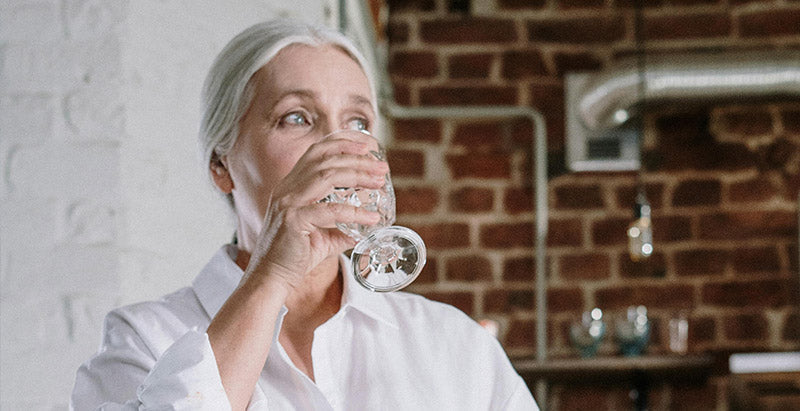Adequate hydration is essential to maintaining good health. Most adults are able to monitor and respond to their hydration needs. However, this becomes more difficult as we get older, meaning elderly people are more susceptible to becoming dehydrated. In this blog post, we'll look at the symptoms of dehydration in the elderly and ways to help older people to meet their hydration needs.
Why are older people at risk of dehydration?
Water makes up a large proportion of our bodies. You can read more about hydration needs in different age groups here.
Up to 20% of older adults are dehydrated, especially those in long-term care establishments. As we get older, our ability to sense thirst decreases. Poor mobility, cognitive decline, and physical ailments (including problems with swallowing) are also potential barriers for staying hydrated.
Certain patient groups are at even greater risk of dehydration. For example, people with dementia or Alzheimer's Disease may be disorientated or forgetful, which could make it more difficult to recognise and respond to thirst. Certain medications such as diuretics and laxatives can also result in an increased risk of dehydration due to fluid losses.
Research has found that some older people may consciously limit their water intake due to fear of incontinence or to avoid relying on others for help with going to the toilet.
Consequences of dehydration in older people
Dehydration is associated with poor health outcomes at all ages, but the effects can be more pronounced in elderly people.
Dehydration in older adults has been associated with pressure sores, urinary tract infections, increased risk of falls, and unplanned hospital admissions. Even mild dehydration can affect cognitive ability, resulting in confusion and delirium.
If dehydration is not addressed quickly, it can result in a rapid decline in an older person's health, which could result in increased disability, loss of independence and even death.
How to encourage older people to stay hydrated
Relatives, friends, carers and healthcare professionals can help to encourage older people to stay hydrated. Here are some suggestions:
- Provide a range of drinks that they enjoy make water more palatable using a ceramic water filter. You could also mix water with other beverages such as fruit squash, fruit juice or cordials.
- Offer hydrating foods such as soups, stews, smoothies, lollies, yogurts, ice cream, fruits, and jellies.
- Ensure they always have a drink during mealtimes. Offer regular drinks between meals too such as water, milkshakes, tea or coffee.
- Leave a jug or refillable bottle of water in an easily visible and accessible place.
- Encourage older people to incorporate hydration into their social activities - why not invite an older person over for a cup of tea or suggest that they attend a local lunch club with friends.
- Prompt them to drink little and often throughout the day - if an older person has memory issues, you could pin a note to remind them to drink in a visible place in their kitchen.






